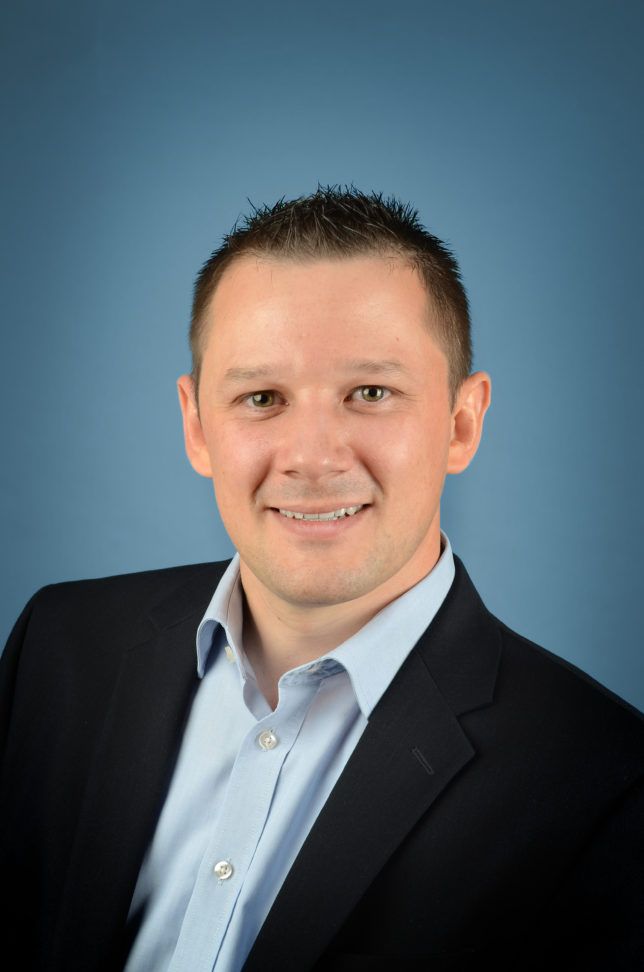RAISING MAINTENANCE EFFICIENCY TO MINIMIZE DOWNTIME
Gregor Stoecker, MTU Power’s Director of Sales and Marketing for Industrial Gas Turbines, discusses the aeroderivative market, aftermarket services, brush seals and expansion plans.

What is MTU Power?
MTU Power is the MTU Aero Engines brand for all services relating to gas turbines. Our expertise ranges from developing, engineering and manufacturing parts and modules for original equipment manufacturers (OEMs) to aftermarket care for LM series aeroderivative gas turbines. As part of the MTU Aero Engines Group, we are at home in the aviation world, where the highest technological and quality standards are the norm. The company operates a global service network with locations in the Americas, Europe and Asia-Pacific. More than 10,000 employees from over 60 nationalities serve MTU’s customers.
What differentiates you from competitors?
Our biggest differentiator is the experience, dedication and creativity of our people. This helps our customers to solve all manner of problems, keep their costs down and increase turbine reliability.
What aeroderivative services do you offer?
MTU Power is a maintenance, repair and overhaul provider for GE LM2500 and LM6000 engines. We are committed to reducing operational cost and maximizing performance and reliability. Our services are flexible and customized. Of all licensed depots, MTU Power has the widest range of GE LM subsystems in its portfolio. We provide engineering support for any turbine or maintenance event. Our maintenance line tears down, inspects, repairs and builds up GE LM2500 and LM6000 gas turbines. Our goal is to have turbines smartly moving through the shop, so operators can cycle them back into revenue service with minimum impact on operations.
Our global network of experienced professionals work out of MTU’s level II service centers around the globe:
• MTU Maintenance Service Center Ayutthaya, Thailand
• IGT Service Center Mongstad, Norway
• MTU Maintenance IGT Service do Brasil, Brazil
• MTU Maintenance Service Centre Australia
• MTU Maintenance Dallas, Texas, USA
This service center network ensures minimum reaction times in case of emergency, as manpower and tooling are in close proximity to the customer. MTU Power offers long-term agreements in which we assume responsibility for all maintenance of contracted gas turbines, including on-site visits wherever necessary.
For which equipment do you provide brush seals?
Brush seals can be found in airplane engines, gas and steam turbines, compressors and other mechanical engineering applications. The technology was developed in the 1980s, initially for military and aero engine applications, before making an entry into the power industry in the 1990s. The move into the energy industry came after years of development, improvement and refinement according to lessons learned in the aerospace industry. Reducing leakage in engines and turbines was the primary motivator in this product development. Brush seals are made up of thousands of thin bristles fixed together using core wire and a clamping tube to form a flexible seal. Incoming gases press this wire pack against a supporting ring, compressing it further. The seal continuously adapts to the moving surface being sealed and eliminates up to 90% of leakage. Brush seals are used, for instance, in the bearing chamber, shaft, interstage, balance piston, impeller and static seals of turbines and compressors.
How much work should be done on site?
We perform as much as possible on site to reduce cost and downtime. This can be dry ice cleaning, LPC and HPC blade and vane, washer bushing and CRF oil-in manifold replacements, exchange of hot section modules or combustors. What trends have you observed in aeroderivative operation? We are noticing an increase in lease engines and rotables being used to avoid downtime when a customer’s turbine is with us for maintenance, repair and overhaul.
Take the U.S. market, where a lot of LMs are used as peakers to cope with spikes in power demand. These machines see multiple starts and shutdowns, leading to more material fatigue. If I’m a peaker operator and my hot section fails, I need a replacement fast, so I can be back up and running when the grid needs me. Electricity demand isn’t going to wait for anyone. As a result, we introduced a dedicated asset manager in Berlin who takes care of all customer lease and rotable needs. We have also allocated LM6000 lease engine and rotable hot section modules to our service center in Dallas.
What trends have you observed in aeroderivative maintenance?
In the past couple of years, we have seen strong growth in maintenance requirements from the industrial and aviation sectors. This has led to situations where parts demand has been higher than expected by the OEMs with subsequent shortages on new material availability. We suggest that scheduled maintenance be planned well ahead of time to allow proper planning of parts requirements as this will reduce downtime during an outage.
What’s new?
We are expanding our facility in Berlin- Brandenburg, adding a logistics center by mid-2019. This will free up shop floor space, which is being reorganized to increase overall capacity. Furthermore, we are expanding our global network and looking to create new service centers in Indonesia and Africa, as well as relocating our service center in Australia.